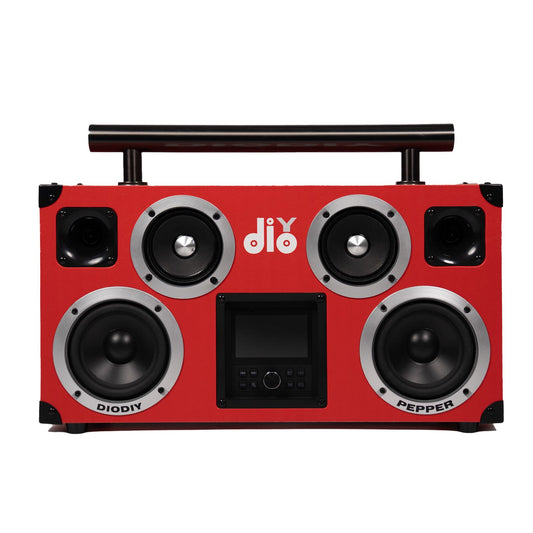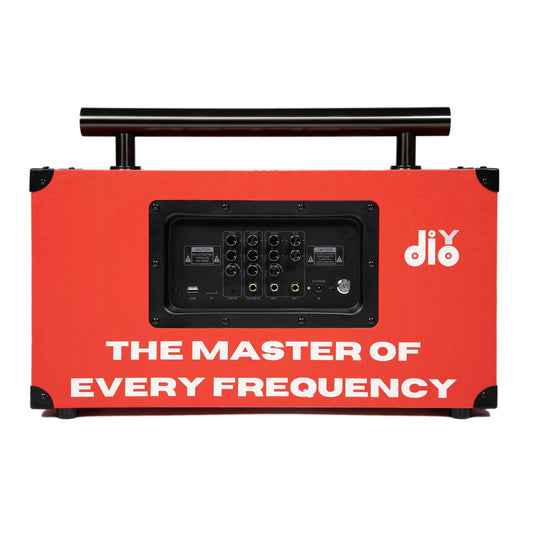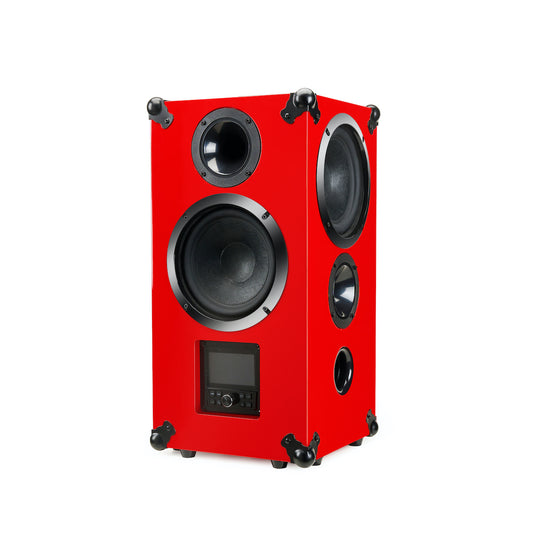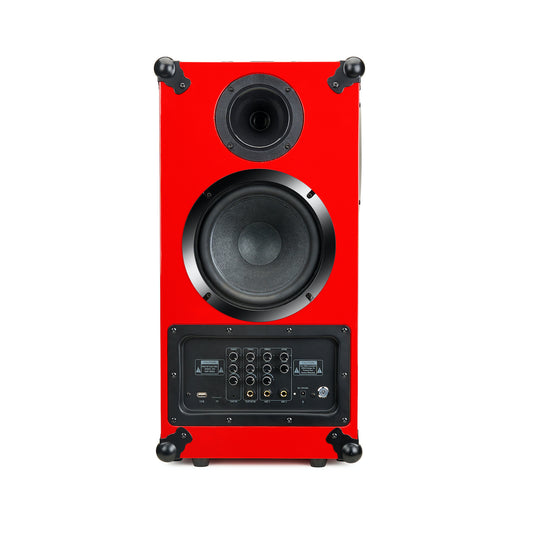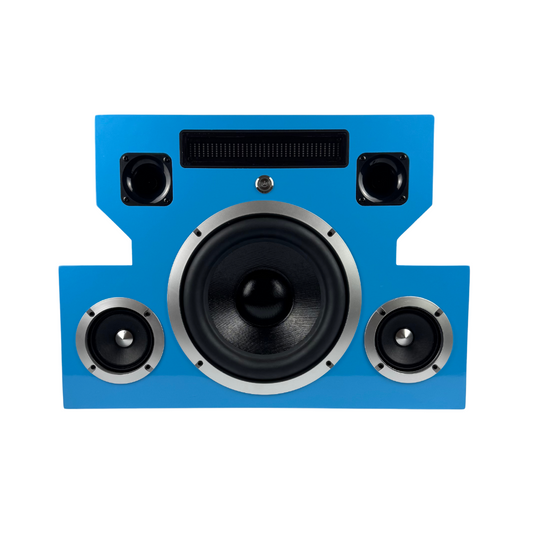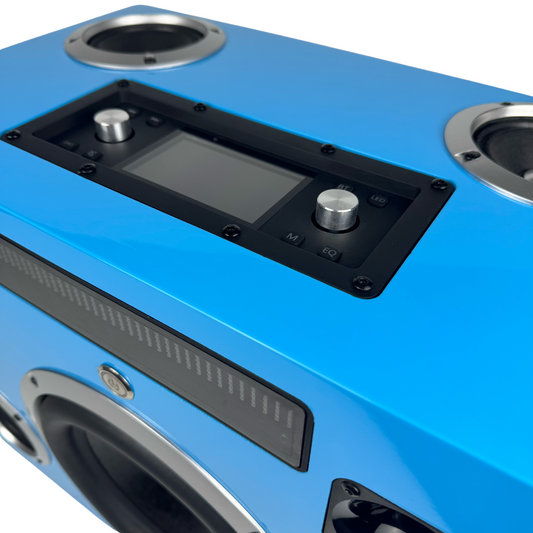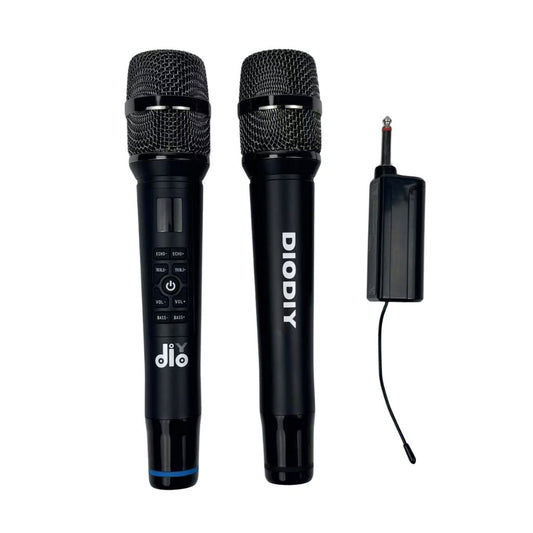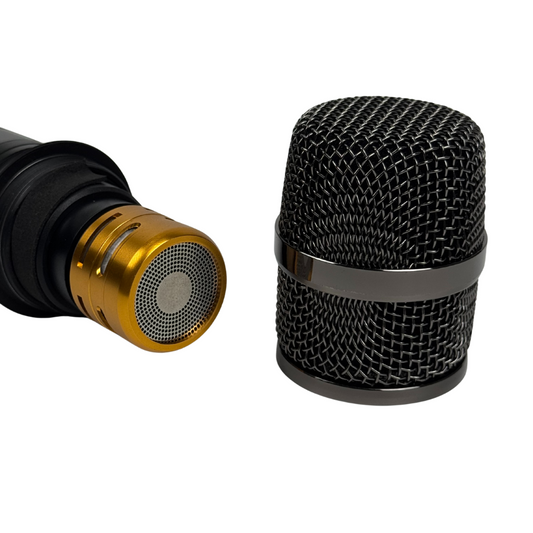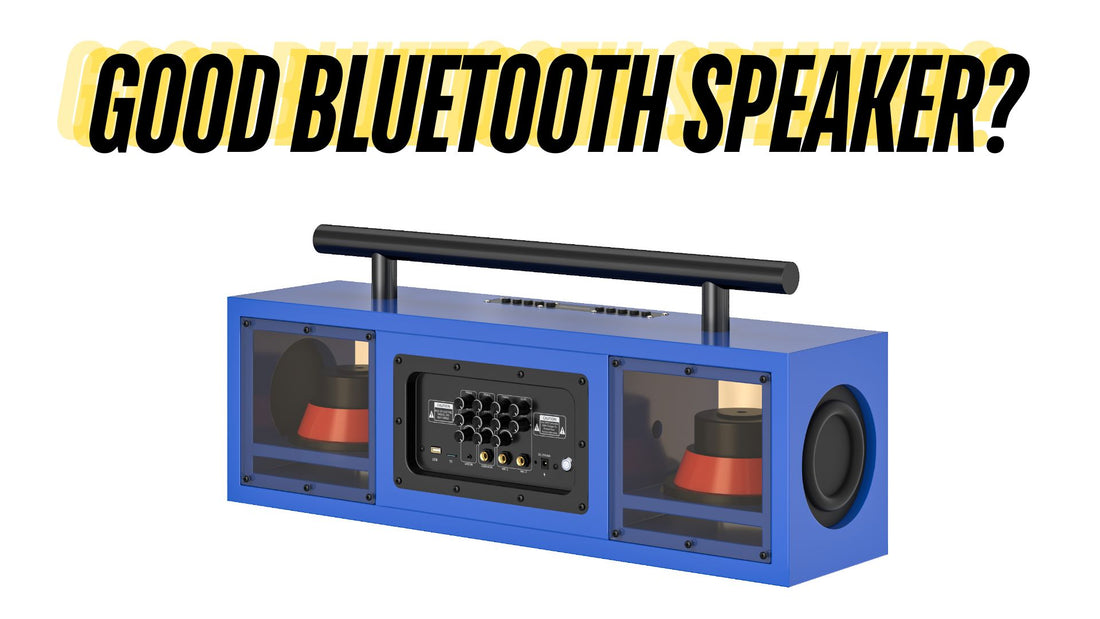
How Can You Tell If a Bluetooth Speaker is Good?
Share
Choosing the perfect Bluetooth speaker can be a challenging task, especially with the myriad of options available in the market today. Whether you're looking for a custom speaker that meets your specific needs or simply a high-quality Bluetooth speaker for casual use, it's important to understand what factors make a speaker good or even great. In this blog, we’ll explore four key aspects that can help you determine whether a Bluetooth speaker is worth your investment: sound system, power output, battery life, and warranty.
By understanding these key factors, you can ensure that your Bluetooth speaker delivers the high-quality sound experience you’re looking for—whether it's for personal use, outdoor activities, or parties.
1. Sound System: Evaluating Audio Quality
The sound system of a Bluetooth speaker is arguably the most crucial factor in determining whether it’s a good speaker or not. After all, a speaker’s primary function is to deliver excellent audio quality, and this depends on a number of components working together in harmony.
a. Driver Quality and Range
The driver is the part of the speaker that produces sound, and its quality directly impacts the audio performance. For a Bluetooth speaker to be considered good, it should have a high-quality driver that is capable of handling a wide range of frequencies. Ideally, it should produce deep bass, clear mids, and crisp highs without distortion.
- Low Frequencies (Bass): A good Bluetooth speaker should have enough driver power to produce deep, resonant bass. Larger drivers or dedicated woofers help achieve this, making the sound more immersive and impactful.
- Midrange and Treble: It’s also important that the speaker performs well in the midrange and high-frequency range. This ensures that vocals are clear and that higher frequencies, such as cymbals and strings, are accurately reproduced.
b. Frequency Response
Frequency response is a key spec that indicates the range of sound a speaker can reproduce. It’s measured in Hertz (Hz) and usually written as a range (e.g., 20 Hz - 20,000 Hz). A good Bluetooth speaker should have a broad frequency response range, ideally extending from 20 Hz (deep bass) to 20 kHz (crisp treble), to ensure it can reproduce the full range of audible sound accurately.
c. Sound Balance and Clarity
A well-balanced sound is essential for an enjoyable listening experience. This means that the bass should not overpower the mids and highs, and the highs should be crisp without being too sharp. A good Bluetooth speaker should deliver clear and balanced sound, whether you're listening to soft classical music or a heavy bass track.
It’s also important to test the speaker at different volumes to ensure that the sound remains consistent. Distortion at high volumes can be a sign of poor driver quality or an inadequate internal amplifier.

2. Power Output: Is It Sufficient and Efficient?
The power output of a Bluetooth speaker is another crucial factor that determines how good the speaker is. Power output is typically measured in watts (W), and it indicates how loud and powerful the speaker can get. However, power output isn’t just about volume—it also affects sound quality and efficiency.
a. Watts and Volume
The wattage of a speaker gives you an idea of its potential volume level. A higher wattage usually means a louder speaker, but it’s not just about sheer volume. The speaker should also be able to produce high-quality sound at those volume levels without distortion. A good Bluetooth speaker will have enough wattage to comfortably fill the intended space with sound, whether it's a small room or an outdoor setting.
For example:
- 10-20 Watts: Ideal for indoor, personal use.
- 20-50 Watts: Suitable for small gatherings or outdoor activities.
- 50+ Watts: Best for large parties or outdoor use where more power is needed.
b. Power Efficiency
A speaker with efficient power output can produce high-quality sound without requiring an excessive amount of power. This is especially important for Bluetooth speakers, as they run on batteries and need to be power-efficient to maximize battery life. A good speaker should have a Class D amplifier, which is more efficient compared to older amplifier types and helps in delivering powerful sound without draining the battery too quickly.
c. Signal-to-Noise Ratio (SNR)
The signal-to-noise ratio is another indicator of the power and performance of a Bluetooth speaker. A higher SNR value means that the speaker can produce a clear audio signal with minimal background noise, which is a hallmark of a high-quality speaker. An SNR of 80 dB or higher is ideal for a good Bluetooth speaker.
3. Battery Life: How Long Can It Play?
For Bluetooth speakers, battery life is a critical feature, especially if you plan to use the speaker in outdoor settings or for extended periods. A good Bluetooth speaker should provide sufficient battery life to meet your needs without frequent recharging.
a. Hours of Playback
A good Bluetooth speaker should offer at least 10 hours of continuous playback on a single charge. This ensures that you can use the speaker throughout the day without worrying about running out of power. Some high-quality Bluetooth speakers can even offer 15-20 hours of playback, which is ideal for camping trips or day-long events.
b. Battery Capacity and Efficiency
The battery capacity is typically measured in mAh (milliampere-hours). A higher mAh rating means a larger battery and potentially longer playback time. However, battery capacity is not the only factor—efficiency also matters. A speaker that uses its power efficiently will deliver longer playback times even if the battery capacity isn’t as high.
c. Charging Time
A good Bluetooth speaker should also have a reasonable charging time. Ideally, the speaker should be able to fully charge in 3-4 hours. Fast-charging capabilities are a plus, allowing you to get several hours of playback with just a short charging session.
d. Battery Type
The type of battery used in the speaker also affects performance. Lithium-ion and lithium iron phosphate (LiFePO4) are popular choices because they offer good energy density and durability. These batteries can hold a charge longer and have a better lifespan, making them suitable for high-quality Bluetooth speakers.

4. Warranty: Does the Manufacturer Stand Behind the Product?
Another important aspect to consider when evaluating the quality of a Bluetooth speaker is the warranty offered by the manufacturer. A warranty is a good indication of the confidence that the manufacturer has in its product. Here’s why a warranty matters:
a. Assurance of Quality
A warranty provides you with peace of mind, knowing that the manufacturer stands behind the product. A speaker that comes with a solid warranty is more likely to be of high quality, as the manufacturer is willing to repair or replace the product in case of defects or issues.
b. Length of Warranty
Look for a Bluetooth speaker that offers at least a one-year warranty. This covers you against any manufacturing defects and ensures that the speaker will be repaired or replaced if something goes wrong. Some premium brands may offer two or even three-year warranties, which adds an extra level of assurance.
c. Extended Support and Repairs
In addition to the standard warranty, some manufacturers offer extended support or repair services. This can be especially important for custom speakers or high-end Bluetooth speakers, as they may require specialized components or servicing over time.
A manufacturer that offers a comprehensive warranty and customer support is more likely to produce high-quality speakers that they believe in. Therefore, it’s always worth checking the warranty terms before making a purchase.
Conclusion: How to Tell If a Bluetooth Speaker is Good
Choosing a good Bluetooth speaker involves looking at multiple factors, each of which plays a role in determining the overall audio quality, durability, and value of the product. By focusing on the following aspects, you can make an informed decision:
- Sound System: A good Bluetooth speaker should have high-quality drivers capable of reproducing a wide range of frequencies with clarity and balance. Make sure the speaker has a good frequency response and can handle both low bass and high treble without distortion.
- Power Output: Ensure that the speaker has sufficient power output for your needs, whether it’s for indoor use, outdoor activities, or larger gatherings. The speaker should also be power-efficient to make the most of its battery life without sacrificing sound quality.
- Battery Life: Look for a Bluetooth speaker with at least 10 hours of playback time. The speaker should also charge relatively quickly, and the battery type should be reliable and durable for long-term use.
- Warranty: A good warranty is a sign of a reliable product. Look for a speaker with at least a one-year warranty to protect your investment, and consider extended warranties or support for added peace of mind.
Ultimately, a high-quality Bluetooth speaker will offer a combination of excellent sound, adequate power, long battery life, and reliable customer support. Whether you’re investing in a custom speaker or choosing from the best brands in the market, focusing on these key factors will help you find a speaker that delivers the unparalleled music experience you’re looking for.
If you’re interested in building or buying a custom Bluetooth speaker that meets all of these criteria, feel free to contact us. Our team is here to help you select or create a speaker that offers the high-quality audio experience you deserve.

